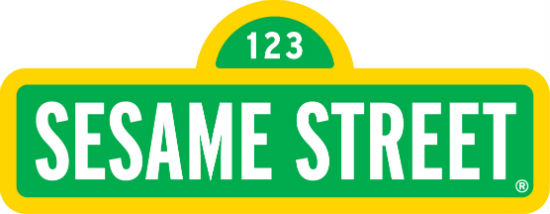School may be the last thing on your mind right about this time of year but in a few very short months, millions of children in the United States will be going into kindergarten for the very first time. These children will be entering the formal education system with a variety of skills, different background knowledge, life experiences, and personalities. Despite research showing that children are born with very similar brain constitutions no matter their socio-economic status, by eighteen months scientists can detect differences in various parts of the brain between children living in low socioeconomic status environments and those in middle or upper class environments.
Given the latest research Sesame Street commissioned from Mathematica Policy Research indicating huge gaps in school readiness based on children's home environment, it is clear that we need to think more about how to improve the playing field so that all children can enter school fully prepared to succeed. Being ready for school is about so much more than the academic basics (e.g. vocabulary, letters, numbers, etc). It's about being smart in every way (including creative problem solving and flexible thinking skills) and being strong in mind and body (e.g. confident and resilient) and kind (e.g. knowing how to get along with other children, developing character). According to the research, only about a third of children are in the process of understanding or actually skilled in the math and reading activities that support the kinds of lessons they will encounter in kindergarten. Only about a half of children consistently demonstrate the social-emotional/executive function skills that will best enable them to adapt and learn during kindergarten. In fact, over one-third of children begin kindergarten not proficient in even one of the domains surveyed. These children tended to have many risk factors and showed low ratings on most items in reading, math, approaches to learning, and self-regulation/executive function behaviors. Although not addressed in the report, there are quite a number of research studies showing that high quality preschool education can make a difference in a child's educational trajectory. There is also evidence that interventions in informal settings can be effective as well.
Helping children develop skills for lifelong learning does not only have to rest with the education system or on parents. It's something in which all of us can participate and nurture. Given how much children spend time with digital experiences, it provides those of us who work in the media industry with an opportunity to use the time we have with children to provide fun, rich, educational experiences. We can create joy around learning. We can open minds. We can provide context, images, and insight into worlds not all children have the opportunity to see. And to do so, we need to work with our writers and producers to create the best content we can.
As an educational not-for-profit organization, Sesame Workshop reviews the state of children's well-being annually to plan the curricula for the upcoming season. When we heard that data on children's school readiness were to be released this past year from the Institute of Education Sciences, we were eager to work with Mathematica Policy Research to analyze the data to give us further direction in our planning. Sesame Street addresses all aspects of child development (academic and thinking skills, mental and physical well-being, and social-emotional behaviors) to help children become smarter, stronger, and kinder. However, given the findings of the analysis, it was clear that we needed to focus our curriculum on specific skills that support school readiness and that can be taught through media. Our intent was not to reduce the importance of any one area of child development, but to become more deliberate about the skills within the broader categories that we needed to emphasize.
To that end, we created our Sesame Street Framework for School Readiness which provides an internal tool to guide how we create, organize, and distribute our content. The Framework is guided and informed by expertise at a variety of national organizations such as National Head Start and Teaching Strategies, as well as a host of other child development and education consultants. We have decided to share this document outside of Sesame Workshop as we believe it can help other creators of materials for young children to become more intentional in their educational messaging in a developmentally appropriate way.
As young children all around the country enjoy the summer, we can use everyday "learning moments" to support the skills and background knowledge children will need in the fall. According to the Summer Learning Association, there is evidence that disadvantaged children lose about two months of reading and math grade level equivalency in the summer. Those of us at Sesame Workshop are continuing throughout the summer to produce content to help children become self-confident, curious, life-long critical thinkers and responsible citizens of their homes and communities no matter their home environment. There are a variety of resources on our website that can help parents help their children prepare for school http://www.sesamestreet.org/parents/topicsandactivities/topics/school Despite the fact that 44% of children arrive at school with one or more risk factors that put them at a disadvantage, we feel confident that those children who engage with quality educational experiences (including Sesame Street) before kindergarten will enter school smarter, stronger, and kinder and ready to learn.
